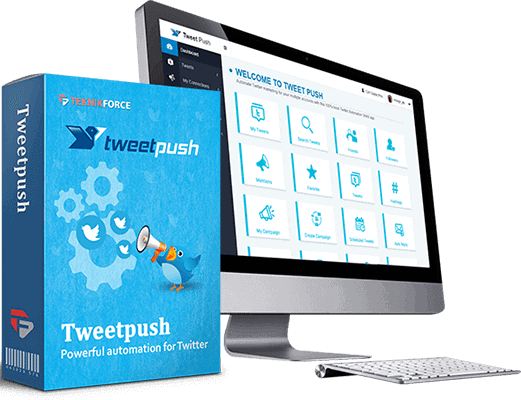
Disclosure: This article contains affiliate links which, if you click and purchase something I will receive a small payment. This is at no additional cost to you. Thanks.
Embracing a continuous learning mindset also has psychological benefits. You’re going to find out about the increased confidence, satisfaction, and mental agility that come with constantly challenging yourself to learn new things.
If you have ever wondered why some people seem to stay ahead in their fields, constantly finding new opportunities and ideas? I will let you in on their secret:
- It’s their commitment to continuous learning.
This isn’t just about acquiring more knowledge:
- It’s also about expanding your skills.
- Understanding new perspectives.
- Networking: Building a network of peers, mentors, and experts can provide support, guidance, and new opportunities.
- Personal Growth: Sharpening critical thinking skills, and boosting confidence and self-esteem.
- And, staying agile in today’s ever-changing world.
In saying that, the word engineer or re-engineer, comes to mind, because it is the fundamental aspect of personal development. You are adaptable to change (re-engineering things).
Think about it: the world isn’t static, and neither should be our ability to grow and adapt. By engaging in lifelong learning, you’re going to find out about new technologies, cultural shifts, and industry trends, before they become mainstream knowledge.
It’s about being proactive rather than reactive, which can open up numerous doors for innovation and creativity.
The strategy I like to leverage goes beyond typical academic pursuits. Continuous learning fuels professional advancement and, quite importantly, job security. Now, you may be wondering if employers really value ongoing education.
Guess what? They do. Many organizations encourage their employees to pursue additional training and certifications, recognizing that the flow of new ideas and skills into their business is vital for sustained success.
And it’s not just speculation!
There is more than enough case studies and research out there, that highlight individuals who have soared in their careers and personal lives by embracing a culture of learning.
From executives to entrepreneurs, the pattern is clear: Those who commit to continuous learning often find themselves at the front of the pack, leaders in their respective fields.
Now, considering the significance of continuous learning in bridging skills gaps, this next section will dig down into how it plays a key role in equipping us for the rapidly changing modern workplace.
You can always adjust your approach down the road, but building a foundation of evergreen skills ensures you’re well-prepared for whatever changes come your way.

Bridging Skills Gaps: The Role of Continuous Learning in a Rapidly Changing World
You’ve likely noticed how fast technology evolves, transforming the job market alongside it. It has been going on for ever right? It’s not just about keeping up; it’s about staying ahead.
Continuous learning is your ticket to relevance. Some people are happy to stay doing the same old, same old, day in, day out and that is fine, until they find themselves redundant.
Think about it this way:- Every industry is undergoing transformation. What was cutting-edge five years ago may now be considered outdated.
It empowers you to adapt your expertise to the current landscape and even anticipate future trends.
Now what is innovation, if not the application of new knowledge?
Continuous learning feeds this cycle of innovation. Through acquiring new skills and knowledge, you can contribute to the next breakthrough in your field. And it’s not just about individual progress; when entire teams commit to learning, the collective brainpower can lead to astounding achievements.
Here’s something concrete you can do: Conduct a self-assessment to identify any knowledge gaps relevant to your aspirations. Then, tailor your ongoing education to fill those gaps.
This proactive stance ensures that you remain an asset in your profession, capable of adapting to change with ease and confidence.
Fostering an Environment of Continual Growth: Benefits and Strategies
Now, I want to walk you through not just why continuous learning is important, but also how you can integrate it into your daily life. This isn’t just about professional development—it’s about enriching your life on a deeper level.
Creating a personal continuous learning plan is a great starting point. I’m here to help you with that.
- Consider setting specific goals that align with your interests and career aspirations.
- Research online courses, workshops, or even books that can expand your knowledge base.
Employers can play a significant role in supporting continuous learning. If your workplace offers training programs or educational stipends, make sure to take advantage of these opportunities.
This type of support not only benefits you, but also contributes to a culture of growth within the company.
But it’s not all about structured environments and formal education.
- Engage with your community
- Join local clubs or online groups related to your fields of interest.
There’s a lot of opportunity in these collaborative spaces for knowledge exchange and networking.
For those who prefer flexibility, online platforms offer a wealth of self-paced options. From video tutorials to podcast series and e-learning modules, choose something that resonates with you and fits into your routine.
Related Article Here.
Remember, your first attempt at integrating continuous learning into your life doesn’t need to be your last. You can always adjust your approach down the road.
The key is to stay curious and keep exploring, allowing your learning journey to evolve just like you do.
Hopefully some of the tips in this exploration of continuous learning brings back some memories of things you have left on the backburner and motivates you to make a start. Don’t worry too much about starting big; even small steps can lead to significant personal growth and satisfaction.
Ultimately, continuing learning is not just a means to an end, but a lifelong journey that enriches both your personal and professional life.
Make lifelong learning a part of your life, and you’ll see just how rewarding it can be.










Hi Steve,
“….advice on motivating team members to adopt this mindset toward learning and growth?” Ok, I will make an effort to get an article done. 😎
Michael,
Thank you for the insightful article on the importance of continuous learning for success. Your points on adaptability and the benefits of lifelong learning, especially in staying ahead in one’s field and personal growth, are particularly compelling. As someone who values building a strong company culture around continuous improvement, I wonder if you have any advice on motivating team members to adopt this mindset toward learning and growth. Your strategies could be incredibly helpful.
Thanks again,
Steve